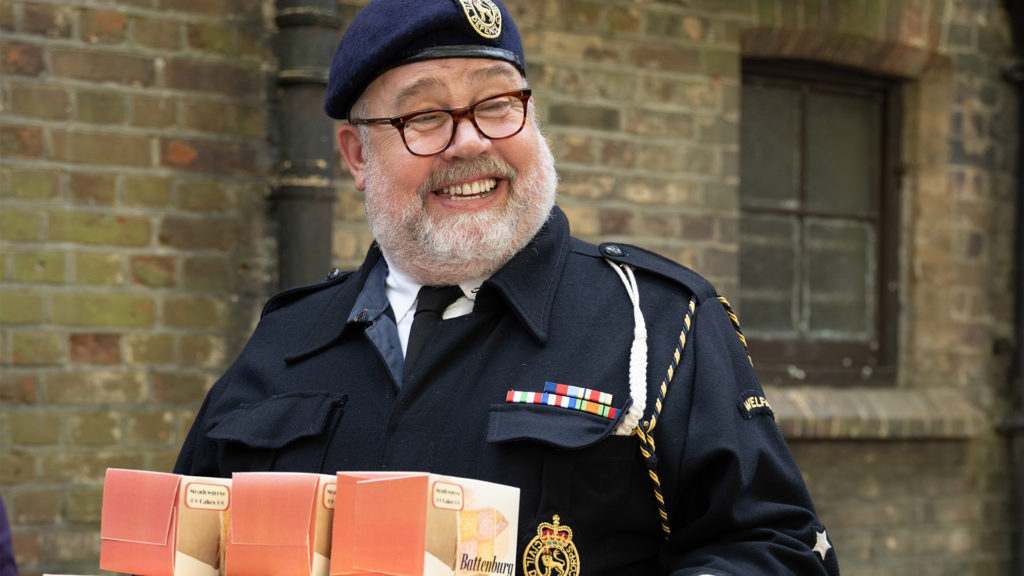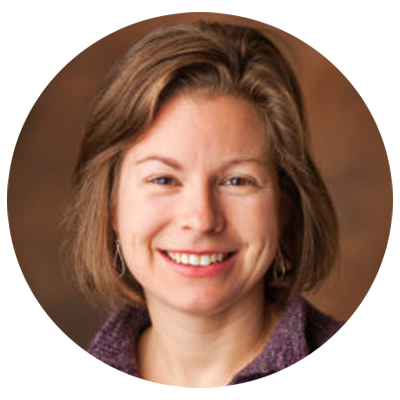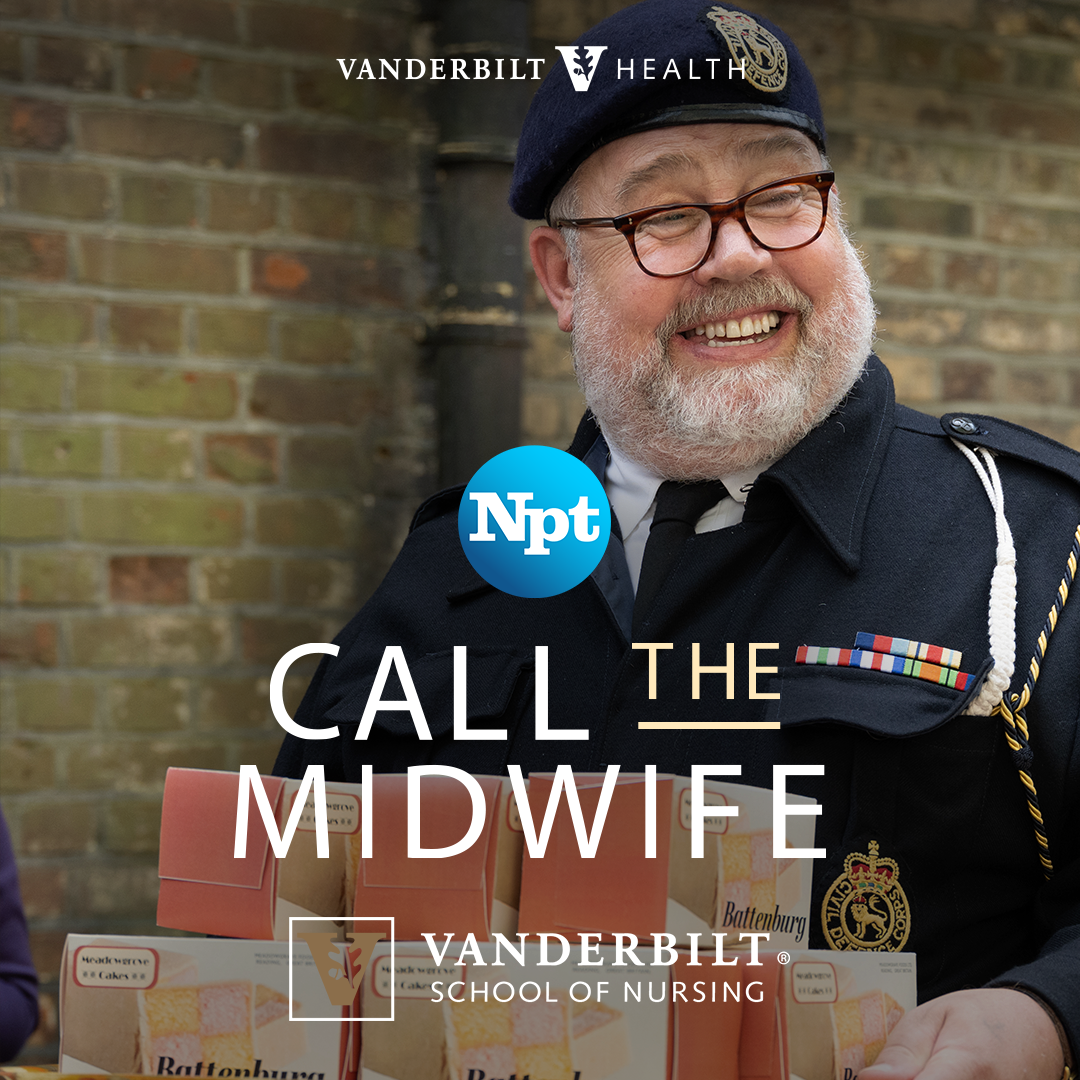
Call the Midwife is back for its 11th season and so are the faculty of the Vanderbilt University School of Nursing to provide historical and contemporary context in a weekly recap blog. Watch the show Sundays at 7 p.m. through May 8. SPOILER ALERT: Some posts may contain plot details.
A major difference between our favorite television midwives and modern-day midwives is that so many of us become mothers while we practice. Of course, half of the Nonnatus team are nuns and motherhood is off the table for them. But the secular midwives live the same lifestyle, available night and day for patient care. Way back in Season 2, Shelagh Turner left midwifery (and the order) when she married and had children. Nurse Nancy is a mother but isn’t raising her daughter. So, to me, Nurse Lucille’s short-lived pregnancy is important: a suggestion of how the roles of women are changing in 1967, and a welcome reflection of my own experience. Every scene flooded me with memories of my own pregnancies.
From the very start, Lucille’s pregnancy is diagnosed and shared differently than your typical Poplar patient’s. Instead of a formal appointment to have her pregnancy confirmed, she and Phyllis sneak a test into the lab, then share the news covertly. Cyril finds out later; Phyllis is the first to know. We never see her officially initiate prenatal care — though maybe that would come if the pregnancy continued — but we see her tenderly cared for by a colleague who deeply understands the needs of a pregnant patient and the demands of the job. When Lucille begins to miscarry at work, Phyllis briskly steps in to midwife her friend and to cover the patient care that Lucille can’t. Their patients never glimpse the private medical emergency or the grief just outside the delivery room.
All three of my pregnancies were diagnosed with pregnancy tests I “borrowed” from my office — though the tests are so simple now I didn’t need an accomplice. And my colleagues always provided insightful, tender care for me. Newly pregnant with my first baby, I stayed late after work with my midwife friend, locked the door against the custodial staff, and performed our own ultrasound to confirm the baby’s viability. This friend brought me daily peanut butter and jelly sandwiches when I craved them fiercely but was too nauseous to open my refrigerator. My first stop in labor was her living room, where she checked my cervix and my baby’s heartbeat with equipment we swiped from our clinic.
Years later, 36 weeks pregnant with my third baby and struggling through a night shift at our busy hospital, I lay down to take a quick nap. I awoke with a start hours later to discover that a colleague had taken my pager and done all my work to allow me some rest. So, when Phyllis gives Lucille an easy assignment, then brings her a cup of tea, I recognize that sweet dynamic.
Practicing midwifery through a pregnancy offers up-close, daily opportunities to learn from experienced mothers, to compare yourself to other pregnant women, and to consider potential complications. Throughout this episode we see Lucille look at newborns differently now that she anticipates her own. And we see her listen to patients differently, learning from them how to be pregnant and how to mother. For example, one casual comment from a patient about flexible jobs for working mothers inspires Lucille to re-train, preparing to balance work and new motherhood. If her pregnancy had continued, Lucille would have enjoyed a satisfying sisterhood with her patients that would compensate for the physical challenge of attending births while dealing with her own backache, nausea and Braxton Hicks contractions.
Lucille’s miscarriage provides a painful lesson: Our knowledge doesn’t protect us from pregnancy complications or loss. My own Cesarean birth taught me that you can’t guarantee a straightforward birth with preparation or knowledge. If you could, midwives would always have easy normal births. But we don’t; to some degree we all rely on luck. I wish luck to Lucille in her next pregnancy. I can’t wait to see one of the Nonnatus midwives join me in motherhood.

Kate Virostko, MSN, CNM, is a member of the Vanderbilt Nurse-Midwives & Primary Care for Women at Melrose, the clinical practice of the Vanderbilt University School of Nursing.
